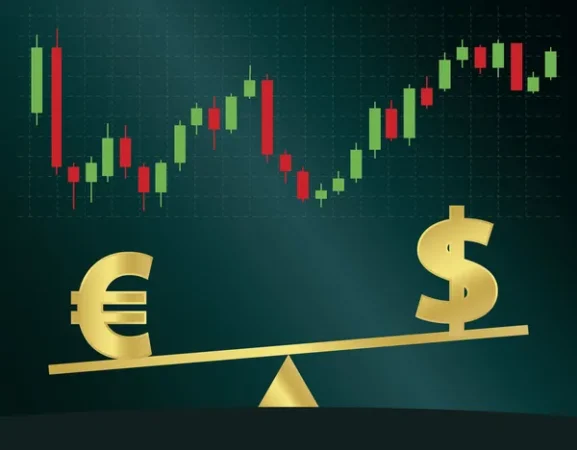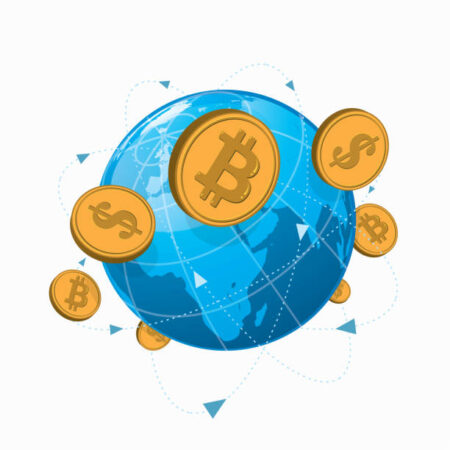In the complex world of finance, understanding what drives global currency exchange rates is crucial. We’ve gathered insights from founders, CEOs, and finance leaders, focusing on the influence of economic indicators and supply and demand. Discover the key factors from these seven industry experts, from how economic indicators shape exchange rates to how commodity market trends inform forex decisions.

ECONOMIC INDICATORS SHAPE EXCHANGE RATES
Economic indicators play a pivotal role in shaping global currency exchange rates. These indicators encompass a wide range of metrics, including gross domestic product (GDP) growth rates, inflation levels, unemployment figures, and interest rate decisions made by central banks. For instance, when a country experiences robust GDP growth and low unemployment rates, it typically indicates a strong and healthy economy, which can lead to an appreciation of its currency value.
Conversely, high inflation rates or unstable economic conditions may prompt investors to seek refuge in other currencies, causing depreciation in the value of the affected currency. Monitoring these economic indicators and understanding their implications for currency markets is essential for making informed decisions regarding international trade, investments, and currency hedging strategies.
Recognizing the correlation between economic indicators and currency exchange rates enables businesses to anticipate market movements and adjust their strategies accordingly. By staying abreast of economic developments globally, entrepreneurs can position their businesses to capitalize on favorable currency trends and mitigate risks associated with currency volatility.
Handy Barot, Founder and CEO, StorX Network
GEOPOLITICAL EVENTS IMPACT CURRENCY VALUES
One key factor influencing global currency exchange rates is geopolitical stability. With over 20 years of experience as a CPA and AI software engineer, I’ve seen how geopolitical events can cause market volatility and impact currency values. For instance, the recent conflict between Russia and Ukraine led to significant fluctuations in the Russian ruble and the euro. The uncertainty and economic sanctions imposed on Russia weakened the ruble dramatically, while the euro experienced volatility due to economic repercussions within the eurozone.
Another specific example from my experience involves political stability and policy changes in emerging markets. During my tenure as a fractional CFO managing businesses in South Florida, I witnessed how political unrest in countries like Venezuela led to hyperinflation and a collapse of the local currency. Companies operating in such volatile regions often need to forecast cash flows accurately to navigate these risks, which is something I have implemented using advanced AI solutions at Profit Leap. This approach helps businesses prepare for sudden shifts in currency values due to geopolitical instability.
Additionally, trade negotiations and policies play a critical role. When the U.S. engaged in trade wars with China, the Chinese yuan devalued significantly in response to tariffs and trade barriers. This scenario demonstrated how political decisions directly impacting global trade can alter exchange rates. By leveraging data analysis and AI-driven insights, businesses can better predict and respond to these geopolitical shifts, ensuring they remain financially stable amid global changes.
Russell Rosario, Founder and CFO, Profit Leap

MONETARY POLICY INFLUENCES CURRENCY STRENGTH
One significant determinant impacting global currency exchange rates is monetary policy. Central banks are pivotal in influencing a country’s monetary policy, which consequently affects the value of its currency.
For example, when a central bank raises its interest rates to curb inflation or prompt economic growth, it often leads to an appreciation of the currency as higher rates attract foreign investors seeking better returns.
On the other hand, lowering interest rates can devalue a currency as it becomes less attractive to investors. Understanding the monetary policies of major economies is essential for interpreting and predicting currency movements in the global market.
Daniel Kroytor, Founder and Director, Tailored Pay
INFLATION TRENDS AFFECT CURRENCY RATES
One key factor influencing global currency exchange rates is inflation. Having extensively studied market dynamics and financial planning, I can say that high inflation significantly impacts currency values. For instance, high inflation in the U.S. can lead to tighter monetary policies by the Federal Reserve, such as increasing interest rates to curb inflation. This can strengthen the U.S. dollar as higher interest rates attract foreign investment.
A good example of this is the global reaction to U.S. inflation in recent years.
In 2022, inflation soared to 9.1% year over year in June, causing the Federal Reserve to raise interest rates aggressively. This move increased the demand for U.S. dollars, given that higher interest rates often lead to higher returns on investments denominated in that currency.
As a result, the U.S. dollar strengthened against several major currencies, including the euro and the yen.
Moreover, global inflationary trends also trigger responses from other central banks. The European Central Bank (ECB) and other major central banks have adopted hawkish stances to control inflation, leading to fluctuations in their respective exchange rates. For example, when the ECB raises rates in response to inflation, it can lead to an appreciation of the euro against other currencies. This interplay of inflation and interest rate decisions across countries directly influences global currency exchange rates, making inflation a central factor in their movement.
David Blain, CFA, Chief Executive Officer, BlueSky Wealth Advisors

INTEREST RATES DRIVE CURRENCY MOVEMENTS
In my experience, one significant factor that influences global currency exchange rates is economic indicators, particularly the interest rates set by central banks. Changes in these rates have a profound impact on currency values as they affect investment flows and inflation expectations.
For instance, higher interest rates often attract foreign investment, leading to currency appreciation, while lower rates may result in depreciation. Therefore, I find it crucial to closely monitor central bank policies and economic data releases to understand and predict currency movements effectively.
Hilary Kinsella, Director of Operations, Money Spider
COMMODITY MARKET TRENDS INFORM FOREX DECISIONS
One key factor influencing global currency exchange rates is commodity prices. Through my in-depth analysis of commodity markets, I’ve observed a profound connection between commodity prices and currency values, especially for commodity-exporting nations.
Fluctuations in oil, precious metals, and agricultural commodities swiftly impact these countries’ economies and currencies. Staying up to date on commodity market trends is crucial to excel in forex trading.
By monitoring commodity prices and understanding their implications for currency markets, traders can anticipate market movements and make informed decisions. Integrating commodity market analysis into trading strategies enhances profitability and risk management in the dynamic forex landscape.
Jeffrey Pitrak, Marketing Account Manager, Transient Specialists

SUPPLY AND DEMAND DICTATE CURRENCY VALUE
The value of global currencies is primarily influenced by supply-and-demand dynamics. Market sentiment, geopolitical events, and economic indicators play crucial roles in shaping these demands.
Positive economic outlooks often lead to currency appreciation, as investors seek higher returns. Conversely, negative economic forecasts can weaken a currency. Working at CheapForexVPS has given me personal insights into these trends.
By understanding these factors, I can strategically navigate the forex market. This knowledge also helps in crafting effective marketing strategies.Ace Zhuo, Business Development Director (Sales and Marketing), Tech and Finance Expert, TradingFXVPS
Featured connects subject-matter experts with top publishers to increase their exposure and create quality, ready-to-publish Q&A content.














































